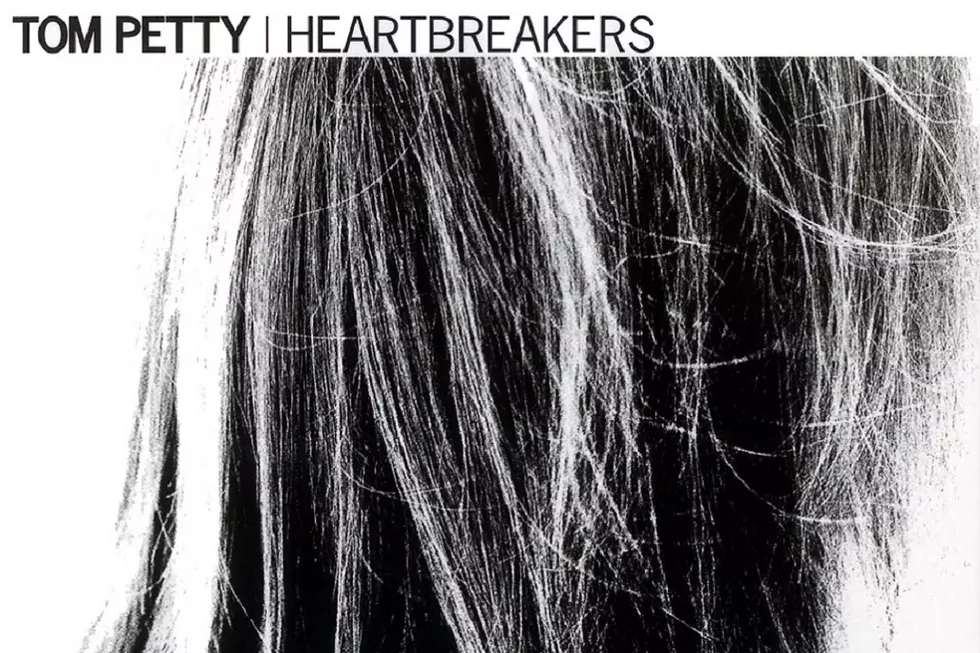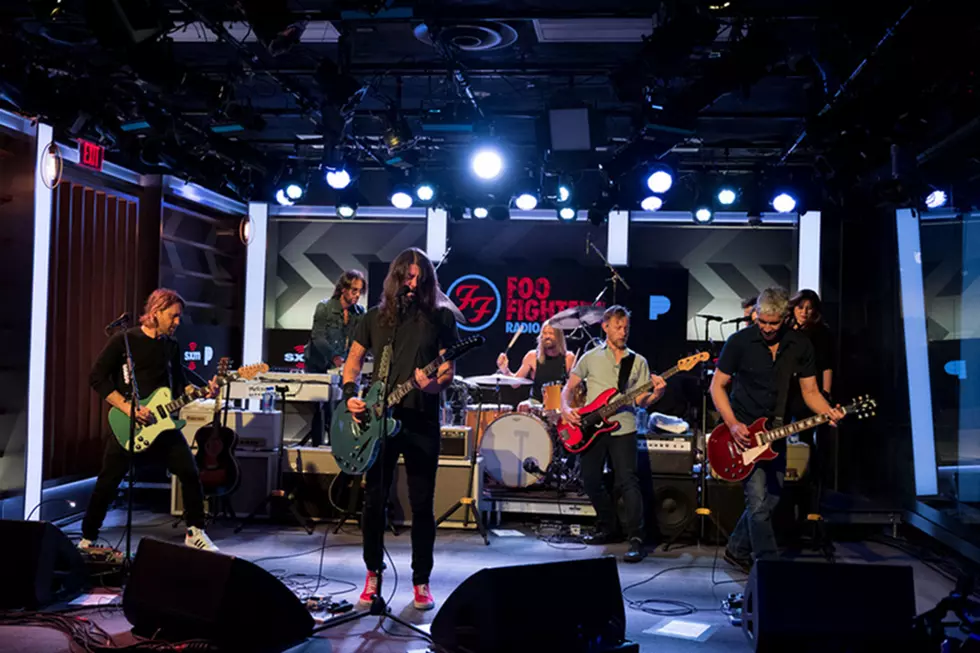
When Tom Petty Took on the Music Industry on ‘The Last DJ’
When they first heard Tom Petty and the Heartbreakers’ The Last DJ, fans, critics and even casual listeners largely came away with the impression that Petty was bitter – or at least cranky – about the music industry. The idea was that, as a veteran rocker, he was now the old man yelling at the kids to get off of his lawn, explaining about how things were better in his day.
Not that this was totally wrong. The album’s title track and lead single is hardly shrouded in mystery; it’s a requiem for radio as it was when Petty was first a fan, when DJs were tastemakers with distinct personalities. If the singer doesn’t snarl on the track, he does seem to be seething as he spits lines like, “As we celebrate mediocrity, all the boys upstairs want to see / How much you’ll pay for what you used to get for free.”
But, Petty would counter, that listeners were being too single-minded about the subject matter – that there was more to his point and deeper musical layers to this record, his 11th with the Heartbreakers.
“I kept seeing these billboards for radio stations that said, ‘No Talk.’ And I thought, ‘God, that’s sad,” Petty said in Conversations With Tom Petty. “And then I saw it as a parallel, a metaphor, for what was going on in the world. So, I kind of devised this kind of moral play. If the record is about anything, it’s about morals – and how far do we go in the name of money, and what’s gained and what’s lost.”
“The Last DJ” was a nickname that Petty had applied to Los Angeles-based hero of free-form radio Jim Ladd, who was credited with being an inspiration for the album in the liner notes. In the songwriter’s mind, Ladd represented what was not just great about radio, but about free expression. The money men, such as the titular CEO in the track “Joe,” are on the other side of the equation.
Listen to the title track from Tom Petty's 'The Last DJ'
At least two other songs on the album – “Money Becomes King” and “Can’t Stop the Sun” – also tied into this theme. If, in writing these tunes, Petty was perceived as a curmudgeon, that was probably true, although he was a curmudgeon with the intent of rallying for the 21st century’s new bands to get the same kind of respect and assistance given to him and the Heartbreakers in the ’70s.
“You don’t see many new acts with a continuity to it. There’s usually not that second hit record,” Petty said in a promo video for the record. “And that’s because these acts aren’t nurtured in any way by the people that hire them. We were very nurtured along in the beginning and sort of taught the artistry of the recording studio and how it’s a very different animal than the stage. … But I don’t think they get that education much these days.”
Regardless of Petty’s reasons, corporate radio took a strong dislike to the album and its lead single, in some cases, banning it from the airwaves. Despite the diminished radio promotion, The Last DJ still debuted at No. 9 on the Billboard chart when it was released on Oct. 8, 2002. However, it became the Heartbreakers’ first studio album since their debut not to go gold in the U.S. within months of its release. Years later, it has still failed to achieve that certification.
In addition, reviews weren’t uniformly glowing. Because the songs were unvarnished in presenting Petty’s view, and because he spoke pointedly about his opinions in the press while promoting The Last DJ, critics tended to focus on the lyrics, and give less attention to the music, when assessing the record.
Listen to Tom Petty Perform 'Dreamville'
Petty’s stance became the story. “The saddest thing about that album to me is that the lyrics got so much attention, that all the music got overlooked,” Petty said in 2005. “And there’s really good music on that record. And there’s beautiful playing, and really good melodies. And I took a lot of time on those songs.”
Petty has expressed his satisfaction with gentle rocker “Have Love Will Travel,” as well as the orchestral treatment given to songs including “Dreamville” and “Like a Diamond.” Composer and producer Jon Brion collaborated with the band on the symphonic accoutrements, while founding Heartbreaker Ron Blair returned to the fold to replace his replacement, Howie Epstein (though Petty and guitarist Mike Campbell played bass on most of the album, before Blair returned). It marked a new era.
Although The Last DJ didn’t perform well commercially, critically or on radio, some Heartbreakers fans – including Bob Dylan – consider the album an overlooked gem. Petty maintained a high opinion of the record.
“I thought The Last DJ was really good,” he said. “It’s different for us, and it was a step forward, I thought. I’m really proud of it. I think it will endure. I think it will be around a lot longer than its detractors seem to think.”
Tom Petty Albums Ranked
Remembering Tom Petty
More From 96.3 The Blaze








